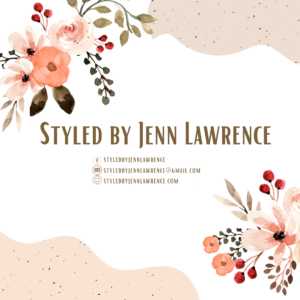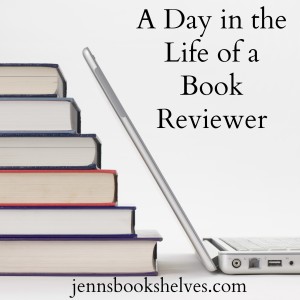It’s not often that I do author interviews, but after reading COME SUNDAY I couldn’t help myself, the questions just flowed right out of me. I hope you enjoy!
You grew up in South Africa during apartheid. Do you think this changed they way you looked at life? At people? How did it affect your writing, specifically what you wrote about?
When I moved to California in 1994 after marrying my husband (an American), the big news was then-First Lady, Hilary Clinton, had said a bad word. I thought, “Wait. What? This is a big deal on this side of the word?” In South Africa, we’d just been through the first free election without any assassinations. Many still feared the kind of bloodbath that had happened in other African countries. A new constitution was being hammered out, and the Truth And Reconciliation Commission was about to be established, a system seeking justice for victims and perpetrators of atrocities through repentance and forgiveness.
Growing up in South Africa meant being immersed in complexities, and so it’s really no surprise that I’m drawn to stories and characters that are complex. The abiding themes of suffering, forgiveness, and redemption have made their way from my childhood memories to the pages of my manuscript.
You’ve lived all over the world, including Johannesburg, London and Honolulu, and now Los Angeles. All of these locations have vastly different cultures. Which location was your favorite, and why?
I like places where there’s a diversity of cultures. Honolulu was probably my favorite, but not for the typical reasons. It was there that I made friends with three amazing women, each from a different part of the world – Singapore, Tonga and the Seychelles. They’re all different colors, too, and for a white girl who grew up in a segregated society, these friends represent a power no government can corral.
You literally left behind everything you had when you chose to leave South Africa and move to the US. How did this change/effect you?
I left my country with two suitcases and enough naiveté to fill a hundred Harlequin novels. I had no idea how hard being a foreigner was going to be. To my husband’s congregation, I was Mrs. Reverend Morley, to the IRS I was ‘Resident Alien.’ It was as though I’d been stripped of my identity, but everyone kept smiling and saying, “Gee, what a pretty accent you have. Are you from Australia?” Amid the daily stresses of driving on the wrong side of the road, deciphering recipes that called for ingredients in ounces and pounds instead of milliliters and grams, and decoding cultural in-jokes like Seinfeld, I built up a big reservoir of empathy for those who are considered “outsiders.”
Abbe Deighton, the main character in Come Sunday has lost her bearings after moving from Africa to Hawaii. Were aspects of Abbe’s life taken from your own? Did you lose your bearings after leaving your home? What did you do to overcome this?
Losing one’s bearings, whether by choice or by circumstance, is probably something each of us should go through at least once. It gives you a chance to examine what’s really important. It’s easy to become defined by stuff. But when you’re lost, physically and spiritually, when you’re emotionally disoriented, you’re in the best position to latch on to what is real and lasting. Love, of course, but also friendship, loyalty, hope, God. Finding out your bearings have nothing to do with compass coordinates is a liberating experience.
Abbe experiences a pretty traumatic loss in Come Sunday. How difficult was this to write, being a mother of a daughter yourself?
It was hard to imagine myself in Abbe’s situation. I used to avoid movies and books where children get hurt, because that’s a deep scary cave. But this was a story that wanted telling, and it was as if I was the sucker who showed up on the day that particular assignment was handed out. Soon after I started writing the story, though, I knew it wasn’t going to be all about grief but more about the redemptive power of forgiveness. It was going to be about the nature of marriage and motherhood and interracial friendships.
Before making the leap to fiction, you were a journalist. How did the two roles differ? Did your role as a journalist help/hinder your role as a fiction writer?
When I wrote for the magazine, it was challenging and demanding, but ultimately soulless. After I quit my job, I pledged never to write again. Ten years later, after Abbe materialized at my bedside one night, I encountered something entirely different. When I sat down to write, it felt as if there was a great invisible river running above me and I was sticking my finger in it, and the undercurrent coursed through me and spilled out onto the page. It was immensely fulfilling and life-changing.
Your work has been compared to authors like Barbara Kingsolver, Bohjalian, Sue Miller, and Anita Shreve. I say I have to agree! Who are some of your favorite authors?
Thank you. It’s very humbling, those comparisons, and I’m sure they’d stop if people were to see me hacking away at the weedy undergrowth of my latest story.
Among my favorite authors are Cormac McCarthy, Tim O’Brien, Anne Lamott, Bill Bryson, Roxana Robinson, Doris Lessing, Jon Krakauer and Alan Paton.
Who/what is your inspiration as you write? Is it always the same, or does it change depending on what you write about?
The inspiration for a story tends to come from a particular character, rather than an event or place. And whatever inspired the character – who can say? I tend to believe it’s the great Creative Spirit who is the author of all stories.
I’m anxiously awaiting another book from you. Can you give us a hint on what you are working on now?
The reason why I wrote secretly in a closet (literally) for two years was because I needed to write and write with permission to fail. I didn’t want to disappoint anyone. For this reason, it’s hard to talk about what’s next. But I can tell you it will tackle deep themes and include events that challenge and change lives.
I’m nosey…I like to see where people work. Can you share with readers a picture of your desk, office, etc?
Here’s where I’ve been doing my writing lately… I have an office, but it’s out on the deck with the view of the San Gabriel Mountains that I spend much of my day. I’ve also traded my computer for old-fashioned notebooks and a ballpoint pen. There’s always a pot of tea and the sound of the mockingbird and grand thoughts drifting along on the morning breeze.
What a breathtaking view! Ahh…and do I spot post-it notes? A woman after my own heart!
Check back later today & enter to win a copy of COME SUNDAY by Isla Morley!









6 Responses to Inteview with Isla Morley, Author of Come Sunday